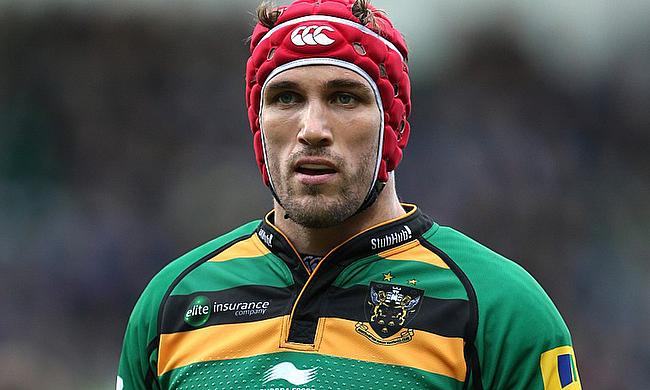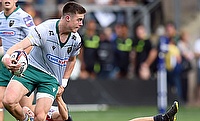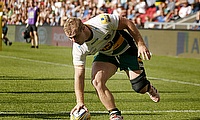Super League – Feb-Oct = 8 months
NHL – Sep-Apr = 8 months
ARL – Mar-Sep = 7 months
NFL – Sep-Feb = 5 months
Other than French rugby, no major comparable contact sport has a season length equal to what English Rugby currently delivers. A season length that is proposed to be expanded. This is a difficult scenario to understand as a player putting your body on the line game after game.
It can be somewhat difficult as a professional sportsperson to express opinions on your job and its complexities.
The swift response is often that we should get a “real job” or likewise.
I would say first and foremost that I have always felt extremely lucky to get paid to play a game. That my working hours are generally short. That I get paid well (though not nearly as much as most would think). That I get to sign autographs and have the odd picture taken. All huge positives, and things that I am grateful for.
But I will say this; professional sport is hard. Not just physically but mentally too. I have broken more bits of my body than I would care to mention. I have undergone surgery multiple times and been hospitalised many more. The constant pressure of performance and results is a relentless cycle that never seems to stop until the final whistle of your final game. From the top to the bottom of the club you represent, we live or die on results. Not getting the right results? Well you might not get paid next year. Long contracts are rare, job security is doubtful.
In most jobs you are assessed perhaps a few times a year. These are undoubtedly stressful times. I’m not talking about basics like getting there on time or filling out paperwork, I’m talking about a difficult skill under pressure. You will be assessed and reviewed by a boss, a group, perhaps a department. As a professional sportsman you are assessed by your team mates, your coaches, thousands of fans in the stadium, potentially millions watching on TV and some bloke down the pub who doesn’t have a clue what he’s talking about. The internet keyboard warriors, the newspapers, the pundits, the podcasts. Everyone has an opinion, everyone is assessing. That is the pressure that comes with the job.
As a rugby player my schedule, my life, is dictated to me. To the day, to the hour, to the minute. One second too late, I don’t make a tackle. One minute late for a meeting? You can be sure I’m getting fined. I have never had more than 2 days off for Christmas in 17 years, I have missed my kids’ birthdays, I have missed out on being a Best Man.
The one respite to this cycle of pressure is the off season. That time of year when the pressures go away. You book a last minute holiday, soak up some sun, YOU FORGET. This guaranteed period of rest is important. It’s crucial. It’s vital! The RPA fought hard to guarantee all players in England a 5 week off season away from their club. It appears as a clause in the Standard Contract which we all have to sign. It’s a time when those niggling injuries finally go away, the aching shoulders rest, the diet eases off.
That isn’t to say we get 5 weeks to simply put our feet up. We are expected to maintain a suitable level of fitness. To return to the club in good shape, ready to work.
After the off season, pre-season begins. Again, an absolutely crucial period for players to prepare for what’s to come. To rehab old injuries. To prehab and prevent new ones. To gain fitness, to shed fat, to become stronger. This period between your last game of the season before and the first of the next is a time when players are made into the athletes you get to see on a Saturday. This training is difficult to accomplish in season, when battered and bruised bodies are instead more likely being patched together for the weekend.
Why is this off season glorification of relevance? Let’s break it down. Under the new season structure proposals…
Those teams not making the end of season playoffs will finish at the start of June. They will return after their guaranteed 5 week break mid-July. They have around 4 weeks before pre-season fixtures will start again. 8 weeks before the season starts. This is substantially less than what is generally agreed to be necessary for a meaningful break.
Those teams making the Premiership Final will finish at the end of June. After a 5 week break they will return to their club at the start of August, when pre-season games generally begin. These players need to prepare for the coming season. Will they even play pre-season fixtures?
And here’s the really difficult one to imagine.
Our best players. Our Internationals. The poster boys who everyone wants to see play. An International making the end of season playoffs will finish his domestic season at the end of June. He will then go on an International tour to the Southern Hemisphere until mid/late July. After 5 weeks off (guaranteed), they will return to their club towards the end of August. The domestic season will start very soon after they return.
Without doub, the game has massively changed since my career began in 2001 at a wet Heywood Road. 2000 people watched a skinny University student trot onto the pitch with a mouth full of jelly babies (true story). Contrast this with Lewis Ludlum whose Premiership debut came last week in front of 40,000 people at Twickenham. The game is faster, the training harder, the players stronger and fitter. The crowds and expectations are bigger. Professionalism is catching up on rugby whether it likes it or not. The game only turned pro roughly 20 years ago. It is without doubt now at a crossroads in terms of where it is going to go.
Without even looking at the number of games being played over the season. The number of minutes played. The number of injuries or concussions, or any other measurable you could put forward as saying that the players welfare is starting to be put in question. Are the likes of Lewis Ludlum, the Curry twins of Sale and Nick Isiekwe of Saracens going to be able to sustain a 15 year career?
With the off season lengths shown above, how are the players supposed to have a meaningful break? To mentally relax? How are they supposed to recuperate? To prepare?
Perhaps most importantly of all, the darkest problems that sports people experience are often those that are seldom talked about. Everyone can see the physical injuries and their impact. But the mental strain associated with professional sport cannot be underestimated. Individuals are starting to speak out about their own struggles. I have known friends and team mates whose battles off the field far outweighed what happened on it.
My personal belief is that adding another month is too much.









